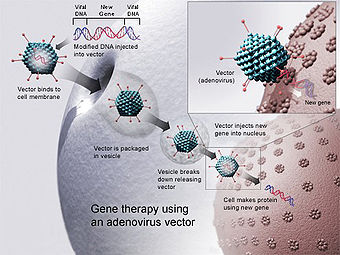Genetics- the scientific studies of heredity
 http://www.genetics.org/
http://www.genetics.org/
True-Breeding- term used to describe organisms that produce offsrping identical to themselves if allowed to self-pollinate
http://www.cactus-art.biz/note-book/Dictionary/Dictionary_T/dictionary_truebred_truebreeding.html

Trait- specific characteristic that varies from one individual to another
 http://en.wikipedia.org/wiki/Trait_(biological)
http://en.wikipedia.org/wiki/Trait_(biological)
Hybrid- offspring of crosses between parents wih different traits
 http://www.sky-brids.com/hybrid%20genetics.html
http://www.sky-brids.com/hybrid%20genetics.html
Gene- sequence of DNA that codes for a protein and determines a trait
 http://www.nature.com/nature/journal/v441/n7092/full/441398a.html
http://www.nature.com/nature/journal/v441/n7092/full/441398a.html
Allele- one of a number of different forms of a gene
 http://www.csulb.edu/~kmacd/361-6-Ch2.htm
http://www.csulb.edu/~kmacd/361-6-Ch2.htm
Segregation- seperation of alleles during gamete formation
 http://www.ndsu.edu/instruct/mcclean/plsc431/mendel/mendel1.htm
http://www.ndsu.edu/instruct/mcclean/plsc431/mendel/mendel1.htm
Gamete- specialized cell involved in sexual reproduction
http://www.emc.maricopa.edu/faculty/farabee/BIOBK/BioBookgenintro.html Probability- likelihood that a particular event will occur
 http://www.genetics.org/
http://www.genetics.org/True-Breeding- term used to describe organisms that produce offsrping identical to themselves if allowed to self-pollinate
http://www.cactus-art.biz/note-book/Dictionary/Dictionary_T/dictionary_truebred_truebreeding.html

Trait- specific characteristic that varies from one individual to another
 http://en.wikipedia.org/wiki/Trait_(biological)
http://en.wikipedia.org/wiki/Trait_(biological)Hybrid- offspring of crosses between parents wih different traits
 http://www.sky-brids.com/hybrid%20genetics.html
http://www.sky-brids.com/hybrid%20genetics.htmlGene- sequence of DNA that codes for a protein and determines a trait
 http://www.nature.com/nature/journal/v441/n7092/full/441398a.html
http://www.nature.com/nature/journal/v441/n7092/full/441398a.htmlAllele- one of a number of different forms of a gene
 http://www.csulb.edu/~kmacd/361-6-Ch2.htm
http://www.csulb.edu/~kmacd/361-6-Ch2.htmSegregation- seperation of alleles during gamete formation
 http://www.ndsu.edu/instruct/mcclean/plsc431/mendel/mendel1.htm
http://www.ndsu.edu/instruct/mcclean/plsc431/mendel/mendel1.htmGamete- specialized cell involved in sexual reproduction
http://www.emc.maricopa.edu/faculty/farabee/BIOBK/BioBookgenintro.html Probability- likelihood that a particular event will occur
Punnet Square- diagram showing the gene combinations that might result from a genetic cross
Homozygous- term used to refer to an organism that has two identical alleles for a particular trait
Heterozygous- term used to refer to an organism that has two different alleles for the same trait
Phenotype- physical characteristics of an organism
Genotype- genetic makeup of an organism
Homologous- term used to refer to an organism that each have a corresponding chromosome from the opposite-sex partner
Diploid- term used to refer to a cell that contains both sets of homologous chromosomes
 http://www.accessexcellence.org/RC/VL/GG/ecb/haploid-diploid_sexual_reproduction.html
http://www.accessexcellence.org/RC/VL/GG/ecb/haploid-diploid_sexual_reproduction.html






